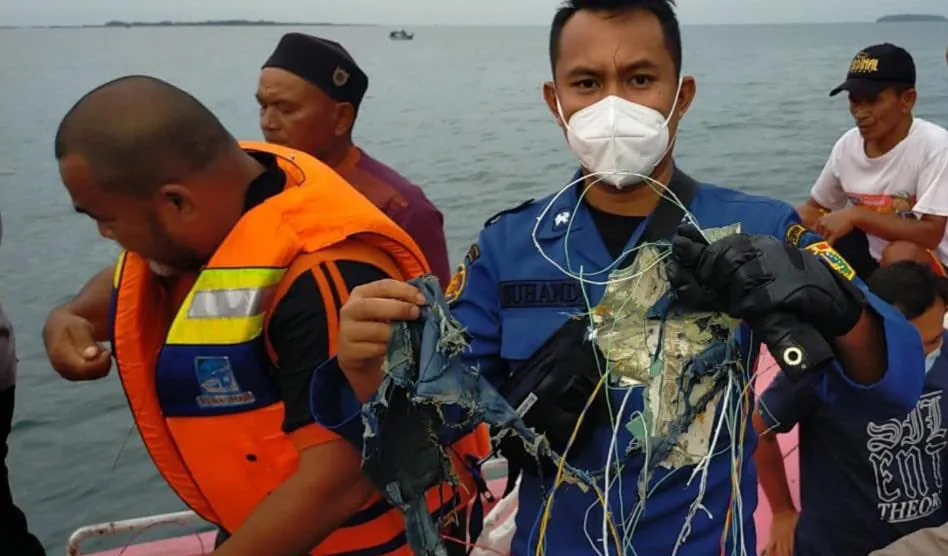
Maintenance and pilots focus of Indonesian 737 crash investigators
Jan 25, 2021

Indonesian investigators focusing on the recent 737 crash are prioritizing two key areas: maintenance practices and pilot actions. They are examining the aircraft's maintenance history to identify any potential mechanical failures or lapses in adherence to safety protocols. Concurrently, they are scrutinizing the pilots' decision-making processes and adherence to standard operating procedures during the flight. This dual focus aims to uncover any contributing factors leading to the accident, ensuring that lessons learned can enhance future safety measures and prevent similar tragedies in aviation. The investigation emphasizes a comprehensive understanding of both technical and human elements in aviation safety.
As investigators delve into the Indonesian 737 crash, a significant focus has been placed on maintenance protocols and pilot performance. These elements are crucial in understanding the factors that led to the tragic incident, and they reflect broader concerns within the aviation industry regarding flight safety.
Maintenance Protocols Under Scrutiny
The investigation into the Indonesian 737 crash has brought "maintenance" procedures to the forefront. Proper maintenance is essential for ensuring the safety and reliability of aircraft. Investigators are meticulously examining the maintenance records of the plane involved in the crash, looking for any signs of neglect or irregularities in service checks.
Key aspects of maintenance that are being scrutinized include:
| Aspect | Details |
|---|---|
| Scheduled Inspections | Were all mandatory inspections performed on time? |
| Repairs | Were there any unresolved issues or repairs logged? |
| Parts Replacement | Were parts replaced according to the manufacturer’s guidelines? |
| Maintenance Personnel | Were the maintenance crews adequately trained and certified? |
By examining these areas, investigators aim to determine whether mechanical failure contributed to the crash. The focus on "maintenance" highlights the importance of adhering to established guidelines to prevent accidents. It also emphasizes the need for regular audits and stricter regulations within the aviation sector to ensure aircraft are kept in optimal condition.
Pilot Performance and Training
Another critical area of investigation is the role of the pilots in the flight leading up to the crash. "Pilot training" and experience are pivotal in managing emergencies and operating aircraft safely. Investigators are looking into the flight crew's qualifications, including their training history and any previous incidents they may have been involved in.
Factors influencing "pilot performance" include:
| Factor | Details |
|---|---|
| Hours of Flight | How many hours had the pilots logged in total and on the 737? |
| Recent Training | When was the last simulator training session conducted? |
| Stress and Fatigue | Were there any signs of stress or fatigue affecting performance? |
| Communication | Was there effective communication between the crew members? |
By evaluating these factors, investigators hope to gain insight into the decisions made by the pilots during the flight. The investigation will likely examine whether the pilots adhered to proper protocols and whether they had adequate support from air traffic control.
The Importance of Investigative Findings
The findings from the investigation into the Indonesian 737 crash will not only address the immediate concerns surrounding this incident but also contribute to the overall body of knowledge regarding aviation safety. "Safety regulations" may be adjusted based on these findings, leading to improved maintenance practices and pilot training programs across the industry.
Furthermore, the crash underscores the need for continuous improvement in aviation safety standards. Both manufacturers and airlines must prioritize rigorous "maintenance" schedules and ensure that pilots receive comprehensive training that reflects current challenges in aviation. The lessons learned from this tragedy can pave the way for enhanced safety protocols that benefit passengers and crew alike.
Conclusion
As the investigation continues, the focus on "maintenance" and pilot performance will remain critical in understanding the causes of the Indonesian 737 crash. By identifying lapses in maintenance or training, authorities can implement measures that will ultimately enhance flight safety. The aviation industry must remain vigilant in its commitment to preventing future tragedies by addressing the root causes of such accidents comprehensively.
In summary, the investigation serves as a stark reminder of the complexities involved in aviation safety, where every detail matters—from the "maintenance" of the aircraft to the training of the pilots. Ensuring that these elements are rigorously monitored and improved is essential for the future of air travel.
Related Articles

Explore Thailand: The Best Islands to Visit for Paradise, Adventure, and Relaxation

The Ultimate Guide to the Best Islands in Thailand for Your Next Getaway

Do babies need passports? How to get a passport for a newborn

How to get a U.S. passport fast: here’s how to expedite the process

What is Mobile Passport Control: 5 reasons why you should use it

SENTRI vs. Global Entry: A detailed guide

Do you need a passport to go to the Bahamas? Let’s find out

Do you need a passport to go to Mexico? A detailed guide

Do you need a passport to go to Canada? We got the answer

Do You Need a Passport for a Cruise: An Essential Travel Guide

Booster Seat Requirements: All the Rules to Follow in Your Rental Car

What Are the World’s Most Powerful Passports, and How Does Yours Rank?

How to Take a Passport Photo at Home: A Helpful Guide

You've got to have heart! Southwest's new livery

Your opinion: Should water be free on low cost carriers?

Young women bolder than guys as solo travellers
